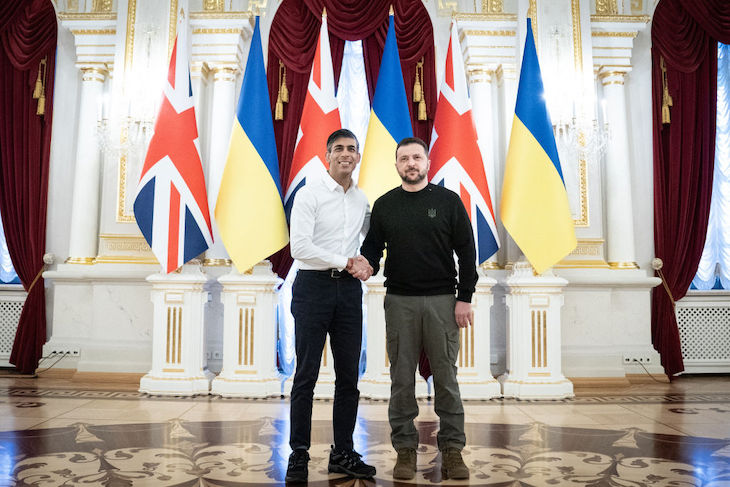In his surprise visit to Kyiv, Rishi Sunak had two pieces of good news for Ukrainians: another £2.5 billion in military aid and an agreement to sign a bilateral defence deal. Ukraine isn’t going to join Nato any time soon, so the country’s leader Volodymyr Zelensky has been trying to build a next-best alternative: a series of deals with allies.
Already a subscriber? Log in
Subscribe for just $2 a week
Try a month of The Spectator Australia absolutely free and without commitment. Not only that but – if you choose to continue – you’ll pay just $2 a week for your first year.
- Unlimited access to spectator.com.au and app
- The weekly edition on the Spectator Australia app
- Spectator podcasts and newsletters
- Full access to spectator.co.uk
Or




















Comments
Don't miss out
Join the conversation with other Spectator Australia readers. Subscribe to leave a comment.
SUBSCRIBEAlready a subscriber? Log in